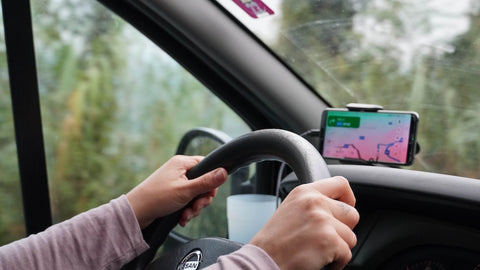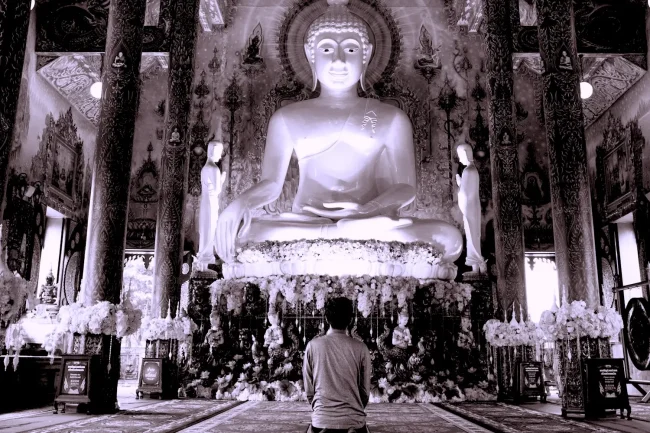Traffic accidents are quite common in the US as well as in the rest of the world. In fact, as per an estimated forecast by Statista, the number of road accidents per 1 million inhabitants in the country is around 7573.93 (2022). Now, while not all of these accidents are disastrous, a major proportion is associated with serious injuries or even death.
Lack of attention on the road due to drowsiness is one major cause of traffic accidents. This is especially the case for people with sleep apnea - a rather common respiratory condition. People with this condition suffer from poor sleep at night, making them feel tired and drowsy while driving the next day. This, in turn, causes them to be less attentive on the road, leading to disastrous consequences.
So, if you have been diagnosed with sleep apnea or are showing any of its symptoms, one of the first questions that might come to your mind is whether it is still safe for you to drive or not. In this article, we have endeavored to answer your question in detail. Read on to know more!
What Is Sleep Apnea?

If you are a professional driver or are someone who regularly drives to work, the first thing you need to do is to be aware of sleep apnea and its symptoms. Of course, there may be days when you aren't able to sleep well at night and are therefore feeling sleepy during the daytime. But in case this pattern repeats itself for several days at a stretch, it may be a symptom of sleep apnea.
Sleep apnea is a serious health condition in which you tend to stop breathing for short durations multiple times while you are asleep. Obstructive sleep apnea is the most common type of sleep apnea found in patients in the US. During the periods when you stop breathing, your body is deprived of oxygen, and the heart rate tends to slow down. Patients usually restart breathing with a sudden jerk, which causes the heart rate to accelerate quickly. This may be risky for your health.
And if left untreated, this may lead to the development of several health issues, including high blood pressure, diabetes, and heart failure. But while these are long term effects, the instantly noticeable symptoms include tiredness, trouble concentrating, and drowsiness throughout the day. And this may pose a problem when you are on the road.
How Does Sleep Apnea Affect Your Ability To Drive Safely?

As mentioned above, people with sleep apnea may feel lethargic during the day. They may have trouble focusing, and their decision-making abilities may also be affected due to the lack of proper sleep. And all of these can hinder your ability to drive safely.
Of course, it is highly unlikely that you would fall asleep while driving during the day - traffic noises and other surrounding sounds will ensure that you stay awake unless you are driving late at night. But staying awake doesn't necessarily reduce your chances of getting into an accident. This is due to the fact that unless you get enough sleep, you won't be at your sharpest while driving on the road.
You may feel drained out, and this may affect your ability to focus on the road. A few common signs include missing traffic signals, getting into a different lane without actually meaning to, and so on. Moreover, you may be easily distracted by random thoughts while driving. And all this puts you at a high risk of getting into unintended accidents.
But that's not all. Since you won't have your full attention on the road, you may fail to see an incoming car or a passerby crossing the road until it's too late. And you may not be able to avoid them due to your inability to react quickly, leading to an accident. In short, people with sleep apnea are at a higher risk of getting into traffic crashes.
Can You Still Drive If You Have Sleep Apnea?
Now, the main question is - considering the risks, can you still drive if you have sleep apnea? Well, according to FMCSA regulations, people diagnosed with any condition that may interfere with their ability to drive aren't qualified to drive any commercial vehicle. In other words, if you are a driver by profession, you won’t be considered fit to drive if you are diagnosed with sleep apnea.
But that doesn't mean you have to give up on driving altogether. As long as you follow the treatment prescribed by the doctor and are able to demonstrate that the condition does not affect your ability to drive at all, you will be considered medically fit to drive again. But, as different states have varying laws, it's best to research your state’s regulations related to this issue.
What To Do If You Suspect That You Have Sleep Apnea?
People with untreated sleep apnea who continue to drive pose danger to not only other commuters but to themselves too. Therefore, if you feel that you are exhibiting any of the common symptoms of sleep apnea, the best idea is to visit a doctor and get a checkup done. Usually, doctors will recommend a sleep test at their clinic to better understand your symptoms, although you may also opt for a home sleep test as per your convenience.
If the doctor is convinced that you have sleep apnea after viewing your results, they will suggest a suitable method of treatment for you. Usually, you will be recommended a sleep therapy device like a CPAP or BiPAP machine, which will enable you to breathe normally while you sleep. And that is sure to reduce your problem to a great extent. Also check out our home sleep test.
Summing Up
To sum up, it's not safe to drive any vehicle if you have sleep apnea. But, as long as you follow the treatment prescribed by your doctor and exhibit signs of recovery, you can restart driving while maintaining all safety precautions on the road.
-------------------------------------
By: Gabriel Garcia
Title: Is It Safe To Drive If You Have Sleep Apnea?
Sourced From: sleeplay.com/blogs/news/is-it-safe-to-drive-if-you-have-sleep-apnea
Published Date: Wed, 25 Jan 2023 14:08:15 +0000
.png)





